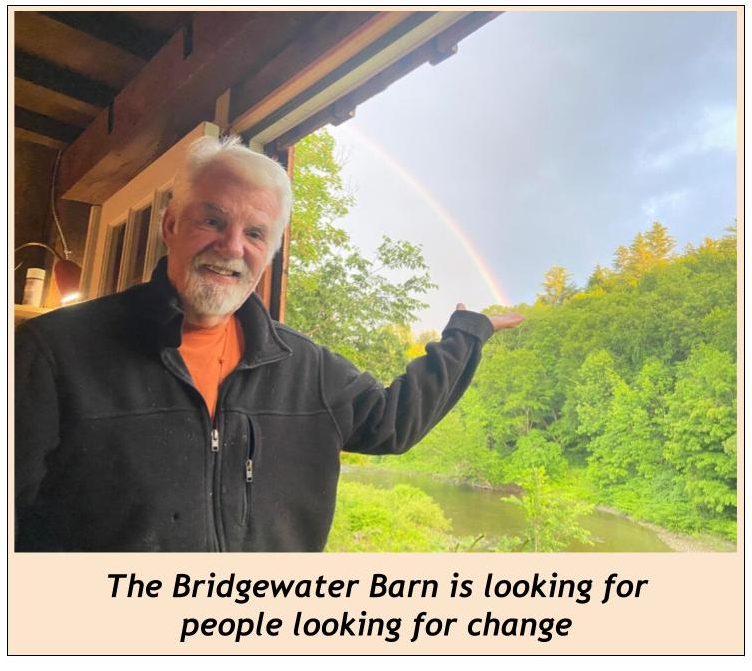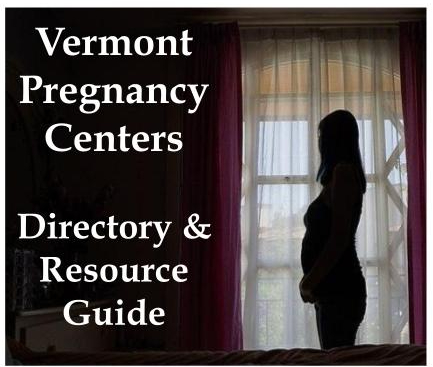by John Klar
I expect most of us agree that pollution is a bad thing, especially garbage. Before I was born, my family (like most) dumped their garbage over the bank across the road from the family dairy farm here in Vermont. To this day, the steep bank is strewn with 1940s and 1950s vehicles, bottles and rusted cans. My great-grandfather’s pipe tobacco tins are a signature Stoddard (my mother’s side of the family, and my middle name) trademark.
The human population of America has roughly tripled in the last century, but the amount of manufactured junk we consume and discard is exponentially greater than a mere tripling – our grandparents lacked the ability to pollute on the scale now available. The wealth generated during that time has allowed us to be “wealthy” in the detritus that clutters our landscape. By the 1980s, this had created a crisis in our landfills.
Garbage Mountains
In the last two decades I have watched one landfill, in Coventry, Vermont, become a massive mountain. Garbage is trucked there (in the far north of Vermont) from New Jersey and other points south. The magnitude of the pile is almost unfathomable, but that mountain has replaced the widespread dispersion of old cars and cans down stream banks. This provides an illusion that we humans are somehow neat and clean: “out of sight, out of mind.” Just so long as that garbage is “not in my backyard….”
The effluent that leaked out of landfills turned out to be quite toxic, and found its way into wells and groundwater. Leachate is carcinogenic, a soup of chemicals and toxins cast away with household trash for decades. By the 1980s this had become obvious, and Superfund status was afforded to numerous landfills around the nation. In addition to managing this outflow of chemical soup with very costly clean-up projects, new landfills were lined with clay and designed to trap leachate, and landfills were placed in less hazardous areas where they were less likely to contaminate fragile ecosystems and groundwater.
In tandem, efforts arose to clean up the garbage that increasingly scarred roadsides. One important initiative was returnable empty bottles and cans. People hesitate to throw those nickels out the car window when they toss their empty MacDonald’s bags and cigarette butts, and even when they do toss them there are those willing to scour roadsides to collect empties as (hard-won) tax-free income.
But that is starting to change, and I fear we will see more garbage on roadsides and streambeds. Government policy can only do so much, and sometimes it does harm. Vermont’s Legislature is epic in its delusional faith that it can alter human behavior effectively: it has passed unenforceable laws against car idling, pushed to impose a redemption fee on water bottles, and mandated that people compost their table scraps—while explaining that there would be no enforcement. This degrades both policy effectiveness and the legitimacy of the rule of law: a very bad mix, and a failure of government.
Today, a nickel isn’t worth what it once was, and inflation will ensure that trend continues: increasingly there will be less incentive for people to invest in gasoline to drive around retrieving empty bottles and cans from roadsides. For the same reason, people will more lightly toss out those empties—they aren’t worth washing and returning (and some places, like my waste handler, now also charge for recycled materials). But meanwhile, a problem is growing from the opposite direction—increased disposal fees. I will use baling plastic as an illustration of this unfolding problem.
Plastic Bale Wrap: a Case Study
Baling wrap is plastic used to wrap round bales of hay to protect against rot and rain. This allows dry round bales to be stored outside without a barn, as is often seen along Vermont roadways. But in the case of “baleage,” which is hay harvested while still containing a significant amount of moisture, the plastic is necessary to keep the hay from rotting—it ferments instead. The environmental cost of this plastic is justifiable for grass-fed animals, because it is offset by eliminating grain from their diets, together with the fossil fuels, chemicals, and other environmental costs associated with growing and processing that grain.
In the last two years, the cost of baling plastic has skyrocketed. But so too have fees for disposing of garbage, including all that plastic. My local dump in Vermont now charges $9 per contractor bag for disposal. I want to protect the environment and always have, but at what point do dump fees become so high that people leave their household trash and old couch on the side of the road?—especially if they are feeding their children (or feeding an addiction). Affordable garbage disposal incentivizes people to properly dispose of their trash; costly fees at some point tip the incentive to roadside dumping.
Lightly-wrapping the round bales with plastic is more cost-effective, but preserves the hay less effectively. The amount of plastic on a bale varies. In some cases, I can only cram the plastic from about five round bales into a single contractor bag, and so this adds nearly $2 per bale to the cost of feeding my cows. This disposal cost may well exceed the cost of buying the plastic new. These costs can’t be passed on to customers, so they eat into farmers’ already-anemic profit margins.
Less conscientious farmers will be easily tempted to burn their plastic bale wrap, or bury it, or leave it in a pile for a future generation – much like my grandparents dumped their waste over the bank 70 years ago. This is not a good thing for anyone. At some point the same principle applies to all household garbage: many low-income people will have to choose between eating, and dumping. The costlier the disposal fees, the greater the incentive to risk throwing garbage bags at a roadside pull-off. It’s that simple.
It’s all well and good to pass nobly-intentioned laws to protect the environment, but human behavior and economics are ever-present realities that cannot be bypassed. It would be a lot less costly for society if the government subsidized rising waste disposal fees rather than dispatched road crews to pick up ubiquitous garbage. Otherwise, the classic “tragedy of the commons” will rule, and taxpayers will be compelled to absorb the costs of garbage, either monetarily or environmentally, for those who dump or burn their refuse to avoid escalating disposal fees.
A Growing Problem
Raising bottle deposits to a dime will not correct this problem, and lower-income neighborhoods will begin to be fouled with piles of vermin-attracting waste while wealthier areas maintain health and appearance. That is neither equitable, nor sensible.
Future trash policy must reckon with on-the-ground realities, and with the natural tendencies of human nature. Expensive waste disposal is a great threat to the environment: solutions are going to be necessary soon.
Republished from Small Farm Republic, a Substack page published by John Klar of Brookfield
Categories: Commentary










You make some excellent points, but please don’t mention feeding your children or your addiction in the same sentence.
The choice of feeding one’s children or one’s addiction is prevalent in Vermont.
It is part and parcel to the lack of personal responsibility now accepted as normal in our society. Even the current legislative thrust to continue “free” school meals to all schoolchildren is indicative of reliance on
the nanny state” to provide all, exempting us from personal responsibility.
Mr. Klar is stating current reality in Vermont. Get used to the ugly sides of ‘democratic socialism” aka- totalitarianism.
Sorry, but the reality for an opioid junkie IS making a choice between feeding the addiction and feeding the kids. It’s usually an easy choice…the addiction comes first. The taxpayers of Vermont already kick in money for both food and addictive drugs, but like to think that we lean toward providing food first. The legislature has already accepted the idea that parents cannot be counted on to feed their own children and are pushing for free school meals for all. During COVID the Vermont taxpayers were paying to deliver hot meals cooked in the school cafeterias, dropped it off right by the roadsides to waiting coolers using taxpayer-funded school buses and drivers. It used to be that the failure to adequately feed one’s kids was considered child abuse. Now we taxpayers are forced to bend over backwards to coddle and pamper people who made a conscious choice to use opioids recreationally, and we also pay for the ads aimed at telling those who are addicted to nicotine that they have a filthy, disgusting habit and that they should call a toll-free phone number and just quit. I dont know anyone who steals or commits violent crime to obtain their nicotine fix, but we read daily about the mayhem and death associated with opioid marketing. That’s the reality…that a majority of us vote for.
To quote a 60s film, THE GRADUATE, to the fascists who were listening your plea comes a little too late, and we are up to our eyeballs now as EVERYTHING can be done in plastic now:
“One word: plastics.”
We stopped thinking about how we were going to LIVE another millenia as a species, and started think how can we make Paradise a parking lot where more money can be made paving God’s Gifts, and burying them in plastic?
We get what we accept…
The first plastic milk jug did the job for me.
I avoid plastic as much as I can… what about the burnables?
And why are recycling stations and dumps always located in or near wetlands?
Oh yeah… Vermont wants to pretend its AI already and we don’t need dirty earth…
For whom the bell tolls…
Okay.
I’ll stop now.